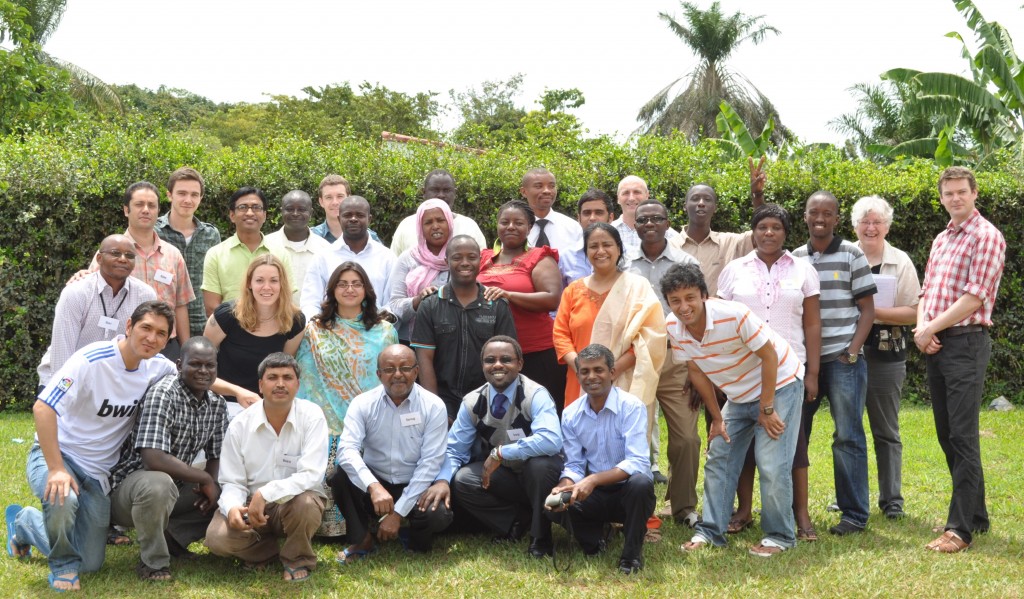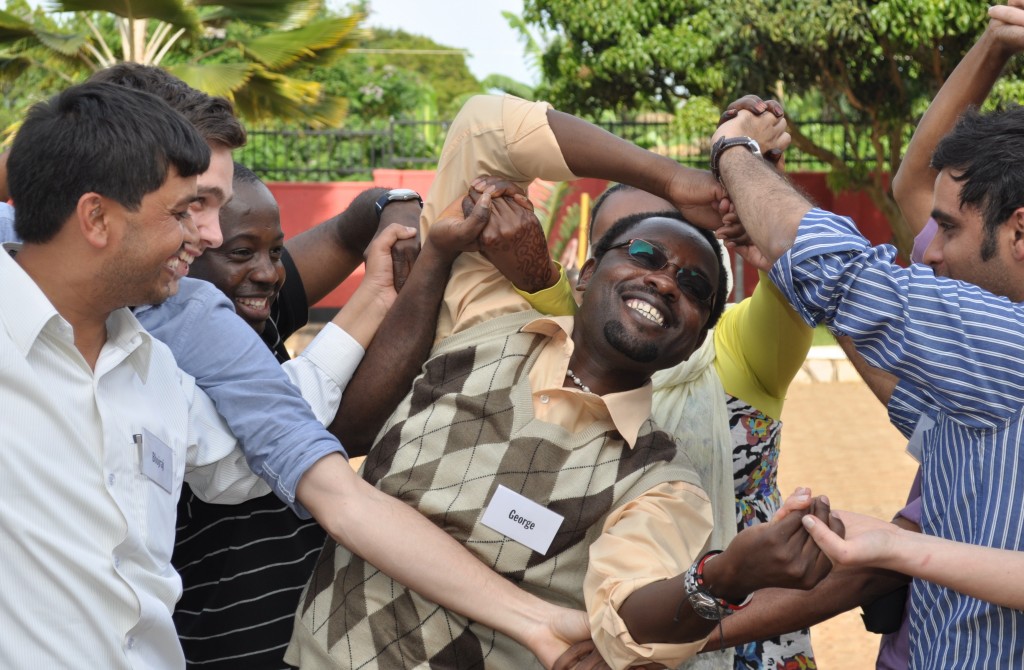Beads - Passion for Facilitation
Capacity development, learning, change, poverty/power/progress
About
Blog about learning/change, facilitation, systems: small groups and large scale processes, and poverty/power/progress.
How would you measure the strength of a partnership?
Building on how-matters.org’s earlier posts, “How to build strong relationships with grassroots organizations” (part 1, part 2, part 3), Ruairi Nolan of Peace Direct offers the following guest post, sharing their experience of trying to determine what is important in relationships with grassroots organisations, and how they’re trying to measure performance in this area.
***
Peace Direct’s mission is to support the work of local peacebuilding organisations. Our belief is that the people best placed to design and carry out peacebuilding programmes are the local organisations on the ground, with their own local knowledge, and the understanding and support of their communities. We don’t see our local partner organisations as extensions of ourselves, carrying out our plans; we prefer to see things the other way round - we act as an extension of their work, helping them to access funding and connections, leaving them to focus on expanding the impact of their peacebuilding work.
Given this framework, it’s not surprising that our success is dependent on our ability to build strong relationships with our partner organisations. In order to measure how we are doing in this area, we recently took part in the independent Keystone INGO Partner Survey of more than 1,000 local overseas partners of 25 international non-governmental organisations. We’re proud to say that we were the top-performing INGO in the survey. As well as vindicating our approach of working closely with partners, the survey was also very useful in suggesting areas where we could make improvements as well. (Our full response to the survey can be read here.)
The Keystone survey was of great help, but we also wanted to devise a simple way to help monitor in an on-going way how we are performing in our relationship with each partner. The first step therefore was to decide what to measure.
Partners engaged at Peace Direct's ‘Peace Exchange’ March 2011 conference in Entebbe, Uganda.
In March this year, we organised a ‘Peace Exchange’ conference in Entebbe, Uganda that brought together our partners from around the world and also some Ugandan peacebuilding organisations featured on our Insight on Conflict website. There, we organised a session to answer the question, “What are the key elements of a successful relationship between Peace Direct and its partners?” (The session was based on the Consensus Workshop technique of the Institute for Cultural Affairs. Many thanks to our facilitator Jonathan Dudding for his help in this.) Getting to a consensus with such a diverse group of organisations (all with strong ideas and opinions) was a lengthy but always interesting process. After many hours crafting our list and re-organising the categories, we came to an agreement on the following list:
- Effective communication: regular, straightforward communication based on trust and clear and simple reporting.
- Common values: a clear understanding of each other’s values with mutual commitment to shared goals and responsible behaviour to each other.
- Long-term commitment: this included a commitment to supporting core rather than project costs for partners.
- Transparency: ‘clear expectations’ was the key concept here, and there was an emphasis on the importance of financial transparency.
- Shared learning: particularly valued was the help with networking and cross-fertilization of good ideas, as well as the sharing of expertise.
- Contextual awareness: a deep understanding of the local context and work on the ground.
- Organizational growth: this includes both financial and non-financial support that allows partners to ‘scale up’ their work.
- Participatory processes: a strong emphasis that the relationship should be a partnership, not a donor-recipient relationship. The importance of sharing processes for monitoring and evaluation was highlighted.
- Moral support: a key factor (both ways) for keeping us motivated.
Taking stock afterwards, the perception of the group was that there weren’t any major surprises in the list, though it was interesting to see certain factors given more prominence than might be expected. Although, for example, we all know intuitively that ‘moral support’ is an important part of personal relations, it was useful to see it elevated to one of the key factors in relationships between organisations.

Participants of the ‘Peace Exchange’ conference hosted by Peace Direct in Entebbe, Uganda in March 2011.
After the meeting, we determined to try and measure our mutual opinions of our relationships with each partner organisation. We have trialled a simple ‘spider diagram’ system to measure how we’re performing in each individual partnership. This involved both Peace Direct and our partners separately scoring our performance out of ten in each category. We then had a discussion revealing the scores and mapping them on to a simple diagram. The good thing about this system is that it immediately allows you to see where there are discrepancies in how we thinking our relationship is performing, and it has proved a great starting point for discussion on the relationships. Because we are scoring the ‘relationship’, rather than evaluating the other side, it allows people to be open and address issues that might be otherwise missed. We’ve therefore been able to target specific areas where we want to improve the relationship with partners.
We plan to review the activity in a year’s time to measure how we have done in each area. We may tweak the categories a little with each partner, but overall we think this will be a useful way of ensuring that we maintain strong, balanced relationships with our partner organisations.
***
Any other ways to measure relationships with aid partners? Kindly share your experiences in the comments section.
***
This post originally appeared at: http://www.how-matters.org/2011/10/19/measuring-partnership/
***
Related Posts
Oral Reporting With Grassroots Organizations—Here’s How!
Waiting for Pennies From Heaven
Already “of” the community
Participation: Reality or the Promised Land? A View from South Sudan
Aid, Africa, Corruption and Colonialism: An Honest Conversation
Views: 43
Tags:
© 2025 Created by Lucia Nass.
Powered by
![]()

You need to be a member of Beads - Passion for Facilitation to add comments!
Join Beads - Passion for Facilitation